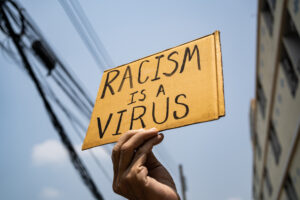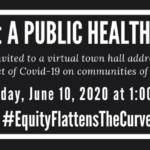
In observance of August as National Wellness month, Focus for Health felt compelled to enter the chat. People are often confused to see that most of our grant making is in communities of color and focuses on anti-racism work. That is because racism is not just a matter of individual prejudice or interpersonal conflict—it is a systemic force that shapes where people live, how they’re treated, and ultimately, how long and how well they live.
Across the United States, Black, Indigenous, and other people of color face persistent inequities in health outcomes not because of their race, but because of racism.
Social determinants of health (SDOH) are the non-medical factors that influence health outcomes. They are the conditions in which people are born, grow, live, work, and age—and they have a powerful impact on health, well-being, and quality of life.
One of the most devastating manifestations of this crisis is a phenomenon known as weathering—the cumulative biological toll of chronic exposure to social and economic adversity. As outlined by Dr. Arline Geronimus and echoed in community research, people of color, especially Black women, experience accelerated aging and increased risk of disease not because of genetics, but because of the constant physiological stress of navigating racism, bias, and inequality.
The data is stark. Black mothers in the U.S. are nearly three times more likely to die from pregnancy-related causes than white mothers. Indigenous populations face disproportionate rates of diabetes, heart disease, and suicide. Neighborhoods shaped by redlining and segregation are more likely to lack access to healthy food, clean air, quality education, and safe housing—fundamental building blocks of health.
Addressing racism as a public health issue requires more than expanding healthcare access. It demands confronting the structural determinants of health: unjust policies, economic disenfranchisement, mass incarceration, environmental racism, and underinvestment in BIPOC communities.
At Focus for Health, we believe true health equity is only possible when we dismantle the systems that create and maintain racial injustice. This means investing in leaders from impacted communities who understand the lived experience of their communities, supporting trauma-informed care, advocating for anti-racist policies, and ensuring that philanthropy is responsive, trust-based, and accountable.





Join the Conversation